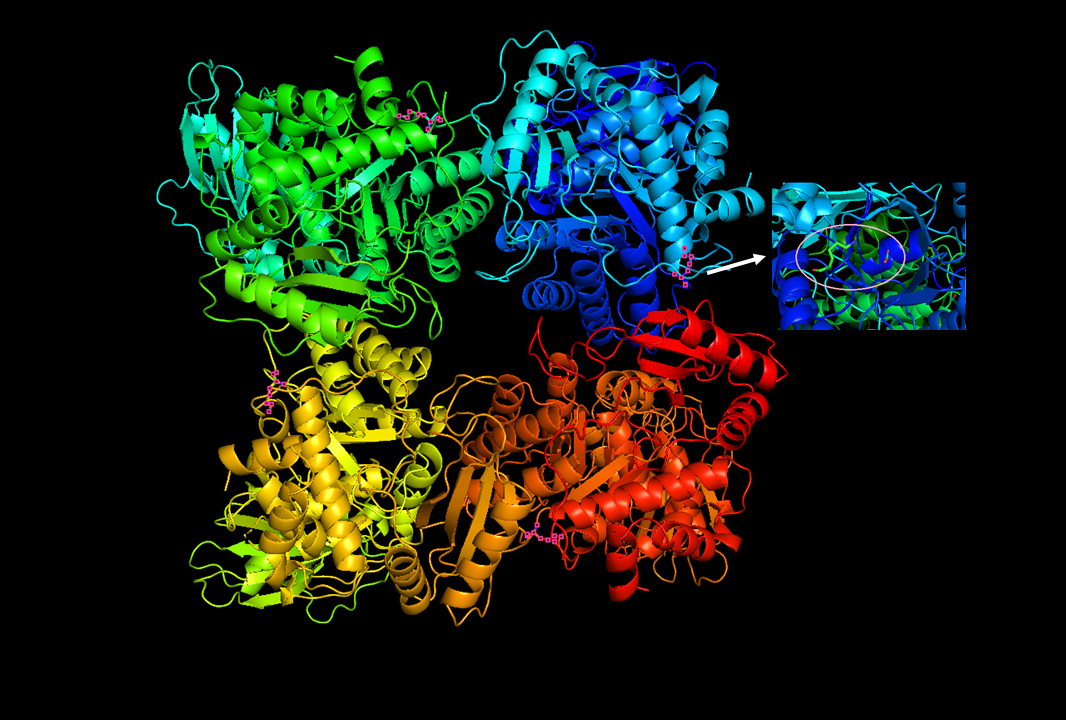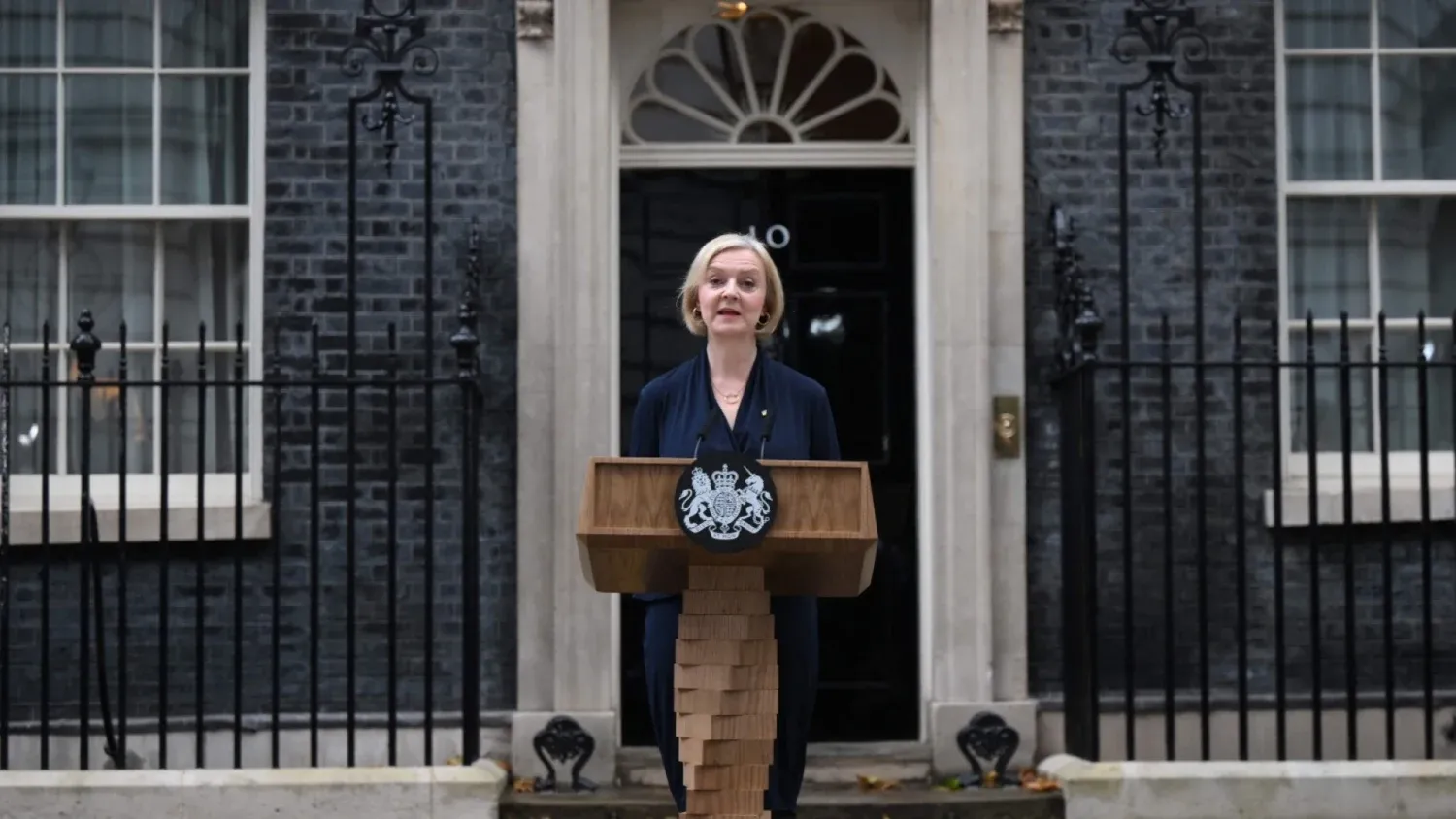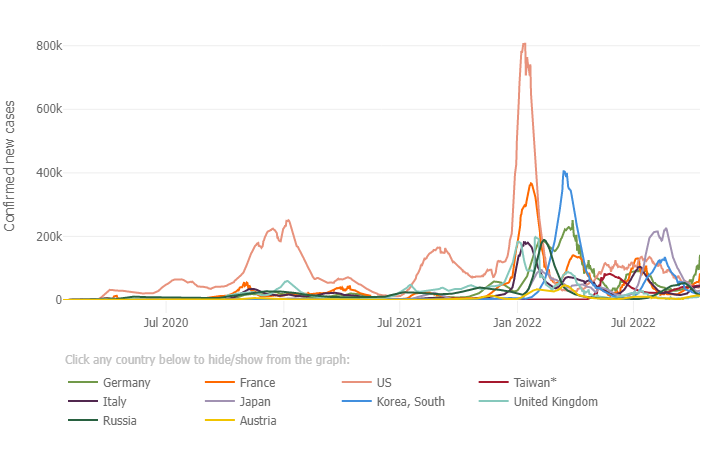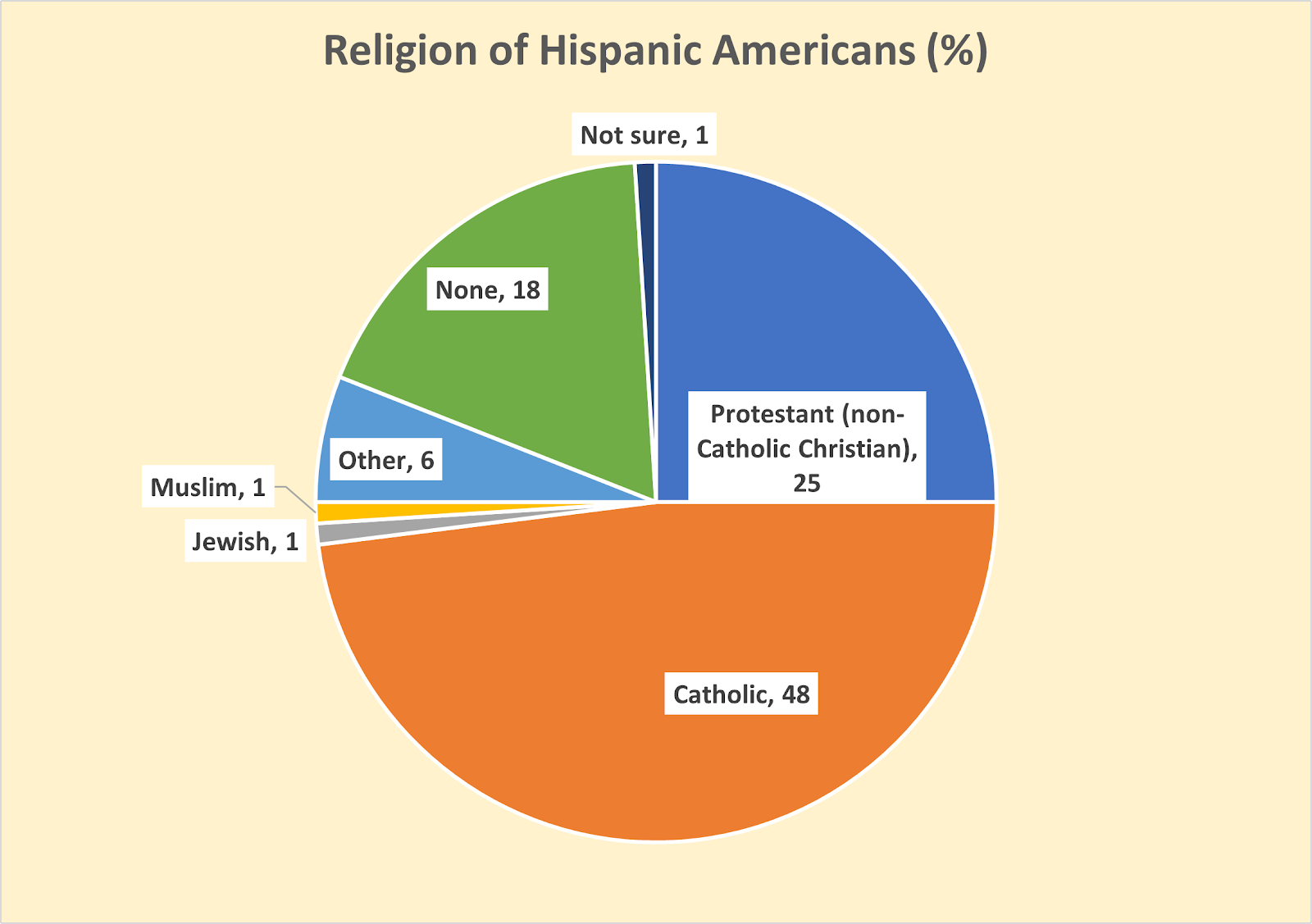
Tory Party leadership contenders, 2022 (second try)
Source: Manchester Evening News
First we had the EU in/out referendum because David Cameron decided he was going to solve the problem of the Eurosceptics in his party, with an inept campaign built on the arrogant assumption that the electorate would vote to stay in the EU because Cameron said it was a good idea, not dreaming for one moment that the campaign by those Eurosceptics would be a new low in political populism.
Using the same lies and fake news tactics that got Trump elected, with one false promise after another and one dire warning after another, playing to the xenophobia of a people who had been subjected to about 20 years of anti-EU propaganda by the right-wing press, creating the perception of a country over-run by welfare-scrounging Eastern Europeans, living on benefits and free NHS healthcare while living in subsidised housing at the expense of the ‘real Brits’. The truth was that immigrants tend to work harder and pay more tax than the indigenous population, and essential services like the NHS and social care and the entire hospitality industry had become dependent on EU migrant labour.
There would allegedly be £380 million a week extra for the NHS by saving our contribution to the EU budget - a calculation that conveniently 'forgot' to take into account the money the EU gave back to the UK in the form of farm subsidies, regional development funds, the famous 'Thatcher' rebate, etc. Then there were the 100 million 'fanatical Moslem' Turks queuing to come to the UK and impose Sharia Law on us, when Turkey was admitted to the EU in a matter of weeks, despite the fact that Turkey was a long way from fulfilling the entry requirements and showed no sign of doing anything to meet them.
And of course there were the loony Brussels Bureaucrats legislating on straight bananas, banning British beer and renaming British sausages to offal tubes, because they hated us - all the imagination of a certain Boris Johnson who used to make up lurid populist stories to write as a hack journalist, rather than bothering with research and fact-checking.
Then we had the charade of Theresa May calling an election in a fit of reckless euphoria over opinion polls which forecast she would win a massive majority, only to conduct such an inept campaign that she lost the majority she already had and guaranteed the Brexit negotiations and necessary legislation would be almost impossible to complete by the exit deadline. The only reason for the election was that May didn't think her majority was large enough to be able to ignore the Eurosceptic faction in her own party. The result was an even bigger and bolder faction. And the hatred of a party that felt let down by a leaders whose job was to give them more power, not less.
That debacle was promptly followed by a government led by Boris Johnson who felt the rules didn't apply to him, as an over-privileged Old Etonian and Bullingdon Boy, even to the extent of lying to the Queen to get her to prorogue parliament to avoid a defeat in the Commons, only to have the Supreme Court rule the prorogation unlawful and invalid and order a recall of parliament.

The Bullingdon Club, class of '87
David Cameron (top left, second along), Boris Johnson (bottom right, first along).
David Cameron (top left, second along), Boris Johnson (bottom right, first along).
Credit: Daily Telegraph
Johnson's victory at the subsequent election was fought on the slogan 'Get Brexit Done', which should more correctly have been 'Get Brexit Bodged' as the result in Northern Ireland has shown. An effective tariff barrier now runs down the Irish Sea with Northern Ireland on the EU side of it – something that the Eurosceptics in the Tory Party, led by Johnson, had declared unacceptable, but which suddenly became acceptable, to ‘Get Brexit Done’ at any price..
Now the previously unthinkable has happened and Sinn Fein is the largest party in Northern Ireland, so the Tory-supporting Unionists are refusing to form a power-sharing executive, with a Sinn Fein First Minister, and restore the devolved assembly. Northern Ireland, like Scotland, had voted 'Remain' in the referendum so the political pressure to reunite with the Republic is growing and making more sense politically and economically, as is the demand for Scottish independence. The result of Cameron's attempt to solve his party's internal problems could now be the break-up of the UK, leaving just little England with Wales as a discontented, alienated appendage, and Scotland re-joining the EU with tariff barriers and passport controls at the border, ending nearly 500 years of political union and an end to the United Kingdom as a single national entity.
And of course, Johnson’s inability to accept that the rules applied to him as well, resulted in Party Gate where he and his staff held boozy parties in 10 Downing Street while the rest of us dutifully obeyed the rules and stayed in our homes and avoided socialising during the pandemic lockdown. While the Queen sat alone in Westminster Abbey at the funeral of Prince Philip, Johnson and his clique partied the night away, leaving the cleaners to clear away the empty bottles and clean up the vomit the next morning. Johnson then casually misled parliament about his part in the parties claiming variously that there were no parties, that he wasn't present and anyway he didn’t realise it was a party because no-one told him it was, despite receiving a fixed penalty notice when the Metropolitan Police had investigated the evidence, to become the first UK PM with a criminal conviction.
Deliberately misleading parliament is a serious breach of the ministerial code and an abuse of power which should result in his suspension from the Commons if he is found guilty by the Commons Standards Committee whose report is due out soon.
Meanwhile chums of ministers were awarded billion-pound contracts to supply hospital and care home staff with PPE which often never materialised and, if it did, was frequently sub-standard and unusable, even old used gowns gleaned from foreign hospital waste bins, with blood still on them. And when the scandals were revealed, a decision was quietly taken at senior government level not to bother trying to recover the money their chums had defrauded the UK taxpayers out of. Not a sign of any concern for the health-care staff whose lives had been put at risk because of the lack of adequate PPE. They were later to be rewarded for their dedication with an effective pay cut with a below inflation increase in salaries. The Nasty Party has shown its contempt for the people whom decent Brits had aplauded from their doorsteps every Thursday during lock-down. (Compassion is for softies!)
Now, having rightly decided Boris Johnson was unfit for public office, and experimented with a swivel-eyed idealogue with no political nous and the charism of a text-reading robot, in the form of the astoundingly inept, Liz Truss, who promised them the biggest bribe if she won, the party is again in open civil war over the next leader - the fourth since Cameron scuttled off to spend more time with his money, and left others to clear up his mess. Unbelievably, there is a very real danger that, if the notoriously greedy and selfish, Thatcherite rank and file get a vote, they could vote Johnson back in, believing he will be best able to deliver to them the extra wealth to which they feel entitled! Having made three monumental mistakes in a row, let's give the mistake before last another go!
It's almost as though the Tory Party has become addicted to self-harm because it feels irrelevant and unloved - at least it's right about something - but is electing yet another leader really the only way it can recover any semblance of its former sense of self-importance?
And this bickering gaggle of self-serving shysters for whom compassion is for softies and morality is in the bottom line of the balance sheet, feels no shame in asking the British people to give it five more years of power at the forthcoming General Election, so it can continue to run the country into the ground to serve dog-eat-dog disaster capitalists.
The following articles by Ben Wellings, Senior Lecturer in Politics and International Relations, Monash University, Australia, give his assessment of the current situation and the Tory Party's responsibility for the mess. They are both reprinted fromThe Conversation under a Creative Commons license, reformatted for stylistic consistency. The original articles can be read here, and here:

Do not adjust your sets: with Truss gone, the UK is about to get yet another prime minister
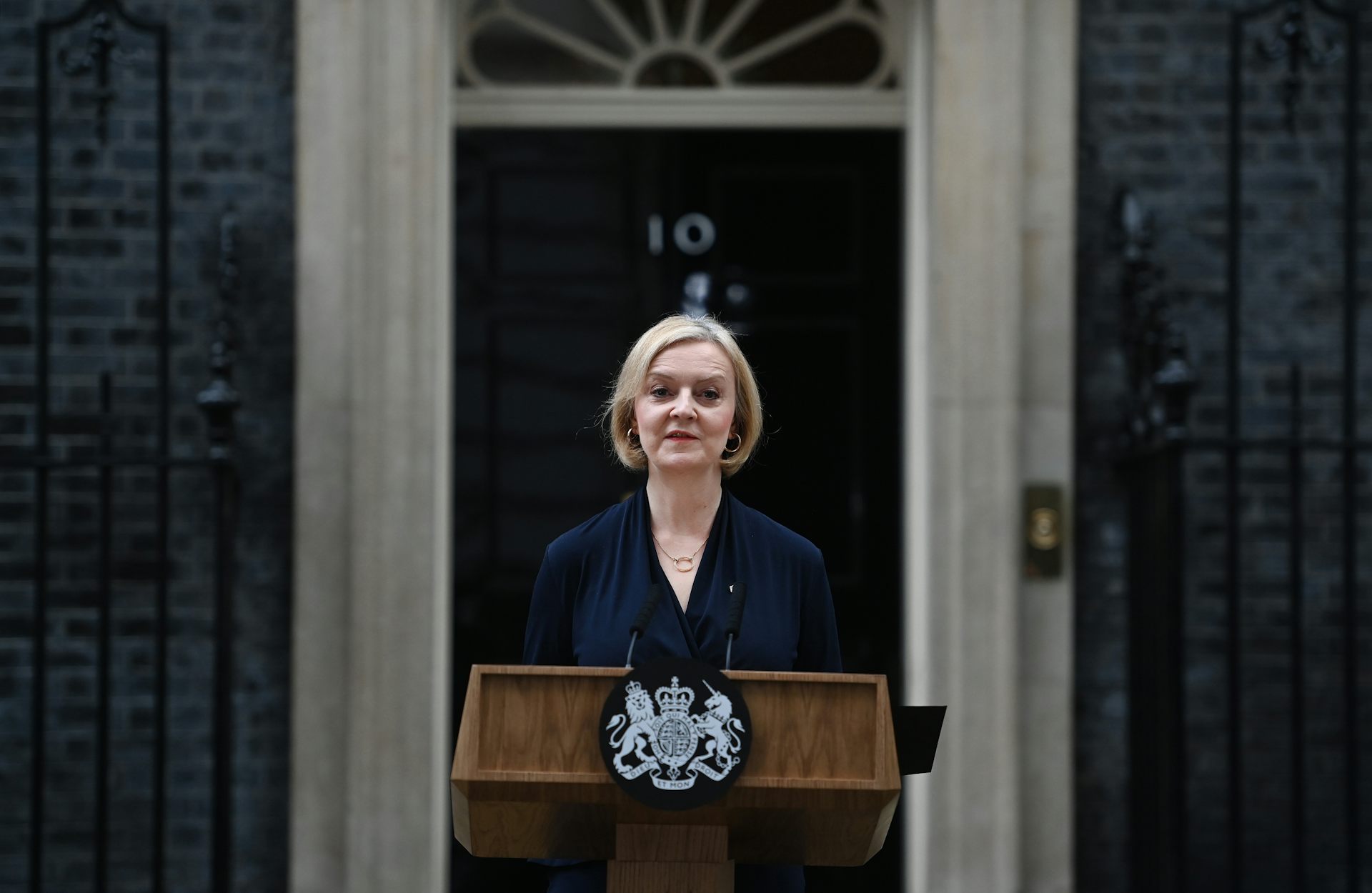
Credit: Andy Rain/EPA/AAP
Ben Wellings, Monash University British politics currently exists in a weird time warp. Like some bad special effects from an early episode of Dr Who, time and reality are bent and twisted – only this time it’s all sadly true.
This time warp operates in four main ways.
The first is that lots happens but nothing changes. Another prime minister has gone, but the same party, bereft of ideas, is still in office, clinging to power for its own sake.
It is a measure of the collapse of confidence among Conservative MPs that they fear electoral oblivion from what should be a quite unassailable majority of 71 seats in the current parliament.
The chaos of the management of the vote on fracking – a mischievous ploy by the opposition – should have been a comfortable backhander for the government. Instead, it precipitated the prime minister’s resignation. It’s as if the election victory of 2019 never happened, and we have gone back in time to when the Conservatives only had a slim majority.
The parliamentary party sees the grassroots members as a liability, and is keen to sideline them as much as possible in what will be a speed-dating version of a leadership contest over the coming week. Like Berthold Brecht said of the Communist Party of East Germany: the party needs to dissolve the people and elect a new one.
The third time warp is that the Tories now look like the “loony left” of the 1980s. Rather than being a party motivated by competently managing dull but important things like interest rates, it has morphed into an ideological fighting machine, tilting at windmills like the BBC and “critical race theory” (whatever that is).
Its ideological warriors sound like the inverse of beret-wearing, right-on Marxists from 1983: seeking to win an ideological war of position by capturing the commanding heights of cultural institutions like the National Trust. None of this helped the left in the 1980s. It is not helping the Conservatives now.
The fourth and last time warp returns us to an era before there was such a thing as the Conservative Party. During the 19th century, a group of men representing the interests of the landed classes and manufacturers eventually cohered into an organisation we would recognise as a political party. Time is now moving backwards, undoing this slow alchemy of centuries.
Much of the problem with British politics is indeed the Conservative Party. But it is right to ask if there is such a party in the singular anymore? The Conservative Party is riven with factions and overwhelming personal rivalries. It must be the worst place to work in Britain right now. But whatever the causes, it lacks a cohesiveness for even the most broad-church of political organisations.
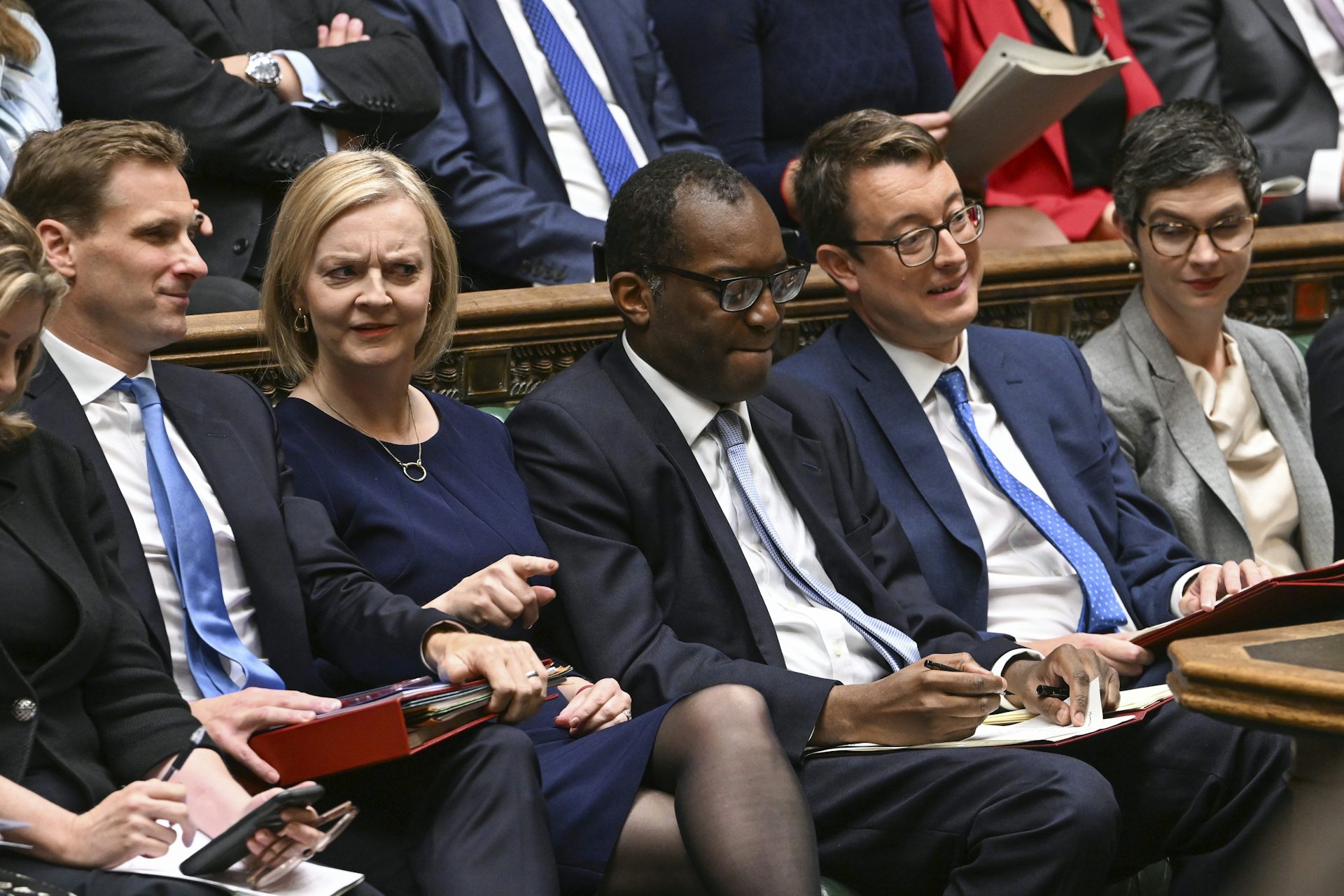
Who will be the next Conservative leader? It’s slim pickings for a party bereft of ideas and waging ideological wars.
Credit: Jessica Taylor/AP/AAP
Finally, bending space as well as time, the United Kingdom has turned into “Britaly”: a Dr Moreau-like hybrid of Britain and Italy where the bond markets are in charge, growth is sluggish, and only one party is in government, although the personnel seem to change constantly.
This all might seem like an open goal for the opposition Labour Party, which after the election loss in 2019 had resigned itself to further decades of permanent opposition. But there is something to be lamented here. After the Republican Party in the USA, the Conservative Party is the oldest – and most successful – party in the world. Both parties have become riven with factions fighting what they see as existential ideological battles. The public in both countries suffers as a result.
It is time for the Conservative Party to have a cup of tea, a Bex and a good lie down. If they were in charge of their time warping trajectory, a return to a time before the lunatics took over the asylum wouldn’t be a bad place to stop and reflect.
Ben Wellings, Senior Lecturer in Politics and International Relations, Monash University

There’s something wrong with British politics. It’s called the Conservative Party
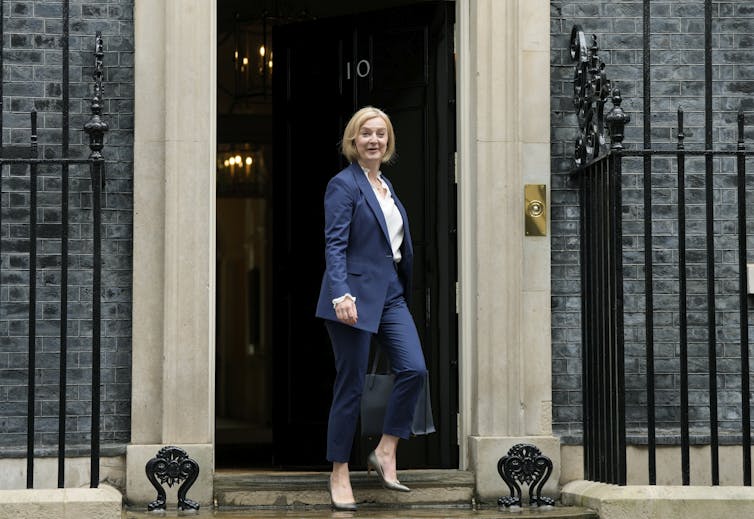
Credit: Frank Augstein/AP/AAP
Ben Wellings, Monash University
The current turmoil in British politics needs to be understood not just as a response to Liz Truss’s short time as prime minister, but as the result of problems within the governing Conservative Party since it came to power in 2010.
The Conservative party is a group of about 180,000 people who tend to be wealthier and older than the average UK citizen. It was this group, more than Truss’s fellow MPs, who chose her as leader of the Conservative Party. It was also this group that endorsed the policies she tried to impose on the country, causing outcry from the populace and the markets.
This method of selecting the leader of the party needs to be changed. The current method was designed when the Conservatives were last in opposition (1997-2010). This means it was unwittingly designed for changes of leader while out of government.
Choosing the leader of the Conservative Party is strictly speaking a matter for the Conservative Party. This is fine when in opposition. When in government, a change of leader means a change of prime minister. This narrow franchise weakens the legitimacy of whoever becomes the new prime minister among the wider UK electorate.
Too much emphasis on leaders
The Conservative Party has also given itself up to an over-emphasis on leaders. This is part of the spirit of the times. But it is also the case that the prime minister is no longer “first amongst equals”. Instead, he or she plays an increasingly important part in why people vote for a particular party.
The Conservatives supported Boris Johnson because he promised to “get Brexit done”. However, the 80-seat majority he won in 2019 gave the impression that the electorate was voting for a leader (Johnson) rather than a party (the Conservatives).
But if this new support was about Johnson and Brexit, rather than a more permanent switch to the Conservatives, it also meant it could not be counted on thereafter. This helps explain the urgency to oust Johnson and the poor reception for Truss’s policies.
Johnson’s new pro-Brexit supporters did not have the same political instincts as most Conservatives. This group of voters likes it when the government intervenes. They liked Johnson when he promised to spend money and address persistent inequalities between northern and southern England – inequalities exacerbated by the actions of Margaret Thatcher’s governments of the 1980s.
So, when he was replaced by Truss, who models herself on Thatcher, the support rapidly evaporated in the north, where memories of the 1984-85 Miners’ Strike persist. In the leafy suburbs of the south, normally rock-solid Conservative voters have seen their mortgage payments and energy bills rise as a result of Truss’s “small state” ideology. They are not amused, and were already drifting away from the Tories as byelections held this year suggest.
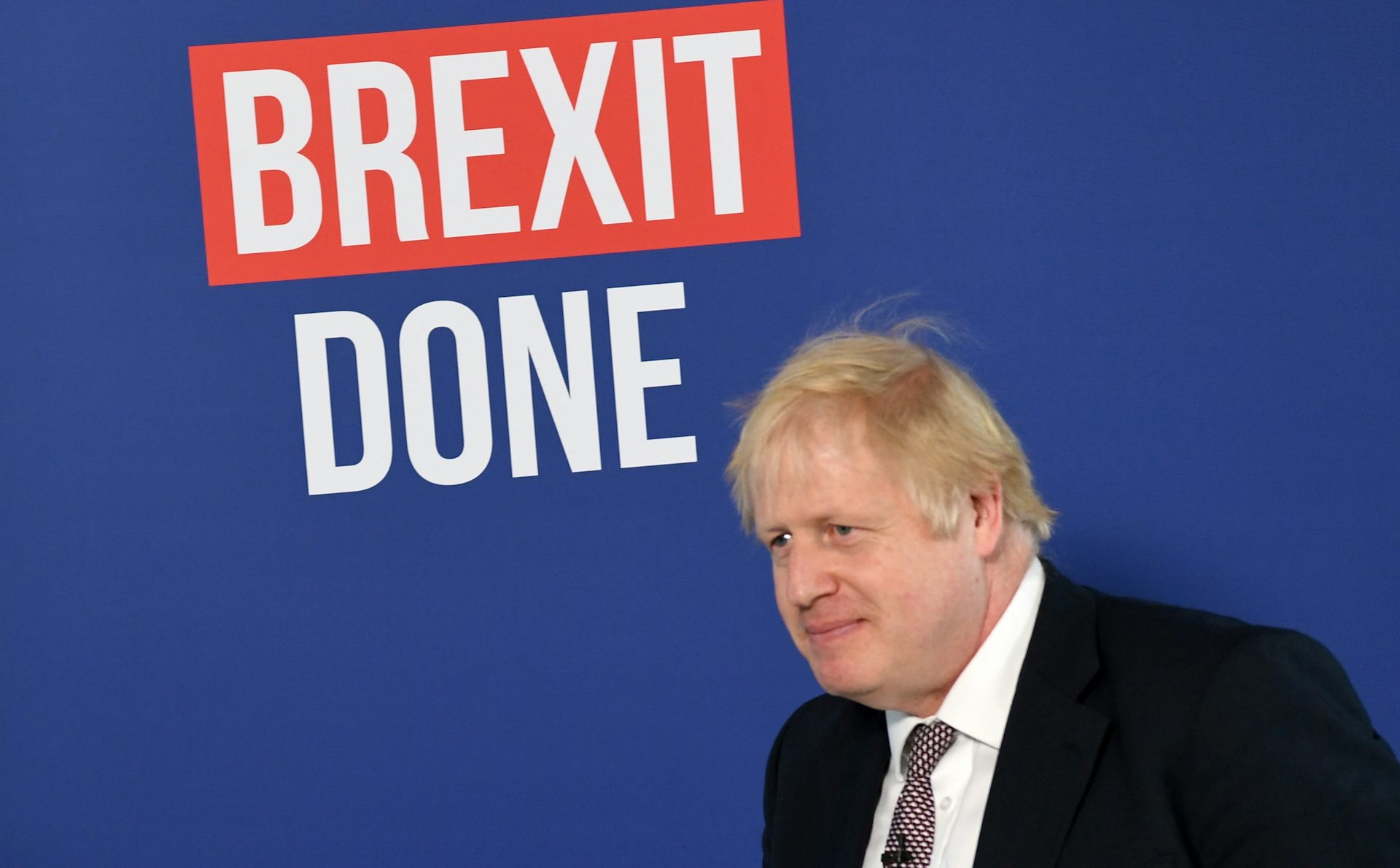
The Conservative Party’s travails may be traced back to Boris Johnson and Brexit.
Credit: Facundo Arrizabalaga/EPA/AAP
Perhaps we should not expect a self-described conservative party to have many new ideas (after all, that’s the point). But the poverty of thinking among its leaders stands out. Brexit had a nostalgic element to it. The Truss-Kwasi Kwarteng mini-budget was more 1980s than Stranger Things. Even the markets couldn’t take the retro infatuation with trickle-down economics.
The Conservatives are stuck in a place where all their ideas are from Britain’s past. In the Conservative Party mindset, the past does not operate as a helpful guide for the future, but as a point of destination. It is a security blanket in the chaos of their own making.
They show no sign of learning from all of this. The instinct of new Chancellor Jeremy Hunt is to return not to the 1980s, but to the 2010s. If you don’t like trickle-down economics, you can have austerity instead.
Austerity is where the current Conservative Party began its time in office back in 2010. Back then, David Cameron promised to address what he called “Broken Britain”. Little did electors realise this was more predictive than descriptive. Cuts to public services punished the worst off while the government claimed “we are all in this together” (in the way that everyone may be on an A380, but some people are in business class).
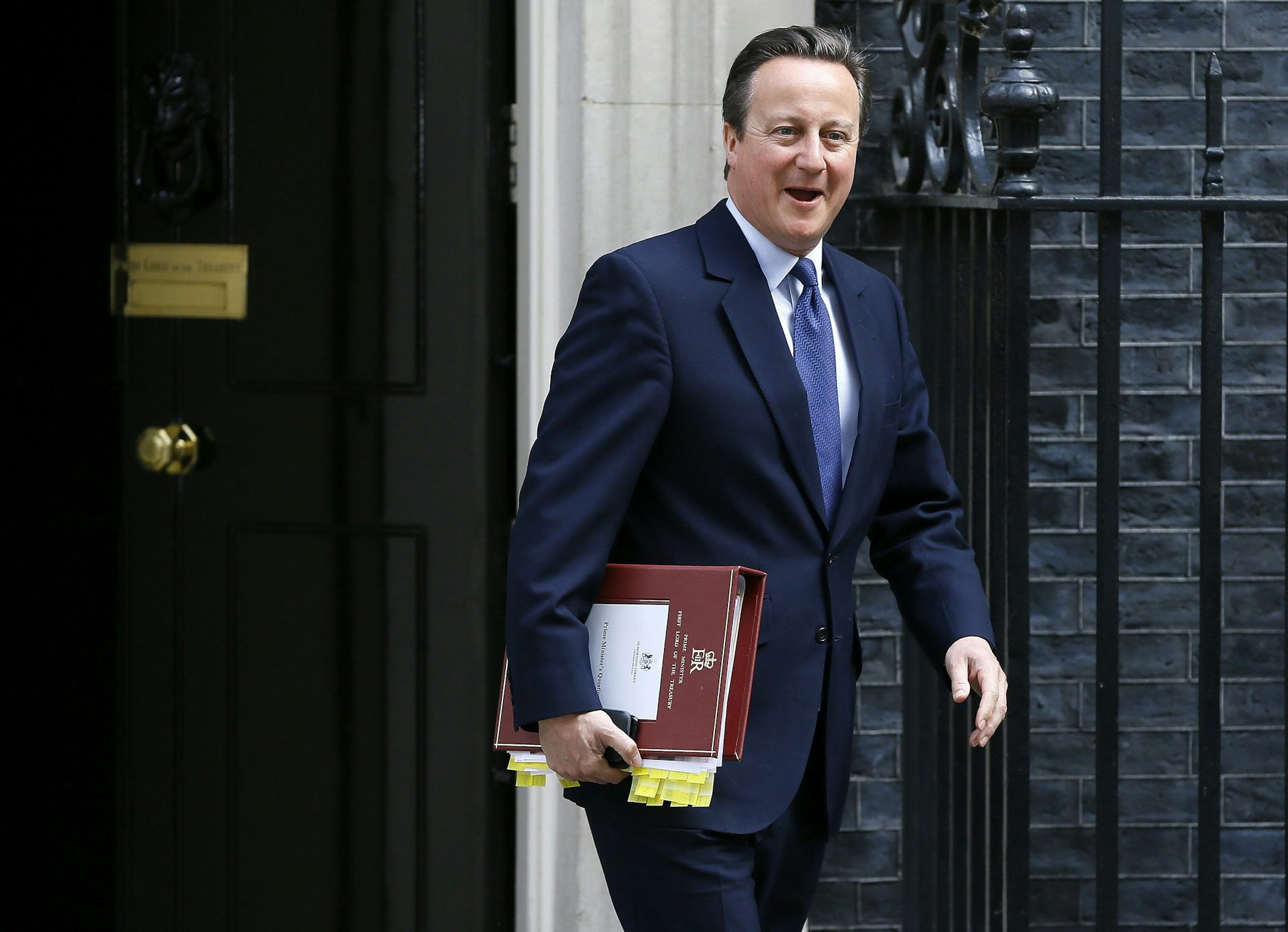
If that’s a no to 1980s trickle-down economics, how about some 2010s David Cameron-style austerity instead?
Credit: Kirsty Wigglesworth/AP/AAP
All of these problems are in some ways internal to the Conservative Party. Voters angered by austerity turned to the right-wing populist party UKIP, forcing Cameron to call a referendum on EU membership. To try to quell the low politics of the militant pro-Brexit wing of the Conservative party, Cameron gambled with the high politics of the UK’s membership of the EU, and lost.
To realise all the illusive and illusionary opportunities that Brexit should in theory create, its most ardent supporters latched onto Johnson to bring down May. Johnson created the parliamentary deadlock of Brexit and then appeared to solve this self-inflicted wound with an election victory built on shifting sands.
However, he soon became embroiled in scandal after scandal, and his behaviour was finally too much even for the vulnerable MPs in “red wall” seats to stomach. Then, just when MPs thought it was safe to go back to their constituencies, Truss damaged already weakening support in the “blue wall” seats in southern England with the mini-budget: perhaps the most spectacular own-goal since Jamie Pollock scored against Manchester City in 1998.
Finally, most Conservatives now think Truss should resign. Yet in a final fling of nostalgia – and harking back to the glory days of the first half of 2022 – their favoured candidate to replace her is Boris Johnson.
The Conservatives have lost sight of where their interests and those of the country depart. By falling back on old certitudes that are no longer fit for purpose, they are behaving like a party that is already in opposition.
Ben Wellings, Senior Lecturer in Politics and International Relations, Monash University
It should come as no surprise that the Tory Party members will, given the chance, elect leaders that are unfit for public office, pursuing policies that benefit them but no-one else. After all, the interests of a parasite and its host rarely coincide.
The Conservative Party is the disease, not the cure.

Tory Party leadership contenders, 2022 (second try)
Source: Manchester Evening News
First we had the EU in/out referendum because David Cameron decided he was going to solve the problem of the Eurosceptics in his party, with an inept campaign built on the arrogant assumption that the vote would be to remain in the EU because Cameron said it was a good idea, not dreaming for one moment that the campaign by those Eurosceptics would be a new low in democratic debate.
Using the same lies and fake news populist tactics that got Trump elected, with one false promise after another and one dire warning after another, playing to the xenophobia of a people who had been subjected to about 20 years of anti-EU propaganda by the right-wing press, creating the perception of a country over-run by welfare-scrounging Eastern Europeans, living on benefits and free NHS healthcare while living in subsidised housing. The truth was that immigrants tend to work harder and pay more tax than the indigenous population, and essential services like the NHS and social care had become dependent on EU migrant labour.
There would be £380 million a week extra for the NHS by saving our contribution to the EU budget - a calculation that conveniently 'forgot' to take into account the money the EU gave back to the UK in the form of farm subsidies, regional development funds, the famous 'Thatcher' rebate, etc. Then there were the 100 million fanatically Moslem Turks queuing to come to the UK and impose Sharia Law on us when Turkey was admitted to the EU in a matter of a few weeks, despite the fact that Turkey was a long way from fulfilling the entry requirements and showed no sign of doing anything to meet them.
And of course there were to loony Brussels Bureaucrats legislating on straight bananas, banning British beer and renaming British sausages to offal tubes - all the imagination of a certain Boris Johnson who used to make up lurid stories to write as a hack journalist, rather than bothering with research and fact-checking.
Then we had the charade of Theresa May calling an election in a fit of euphoria over opinion polls which looked like she would win a massive majority, only to conduct such an inept campaign that she lost the majority she already had and guaranteed the Brexit negotiations and necessary legislation would be almost impossible to complete by the exit deadline. The only reason for the election was that May didn't think her majority was large enough to be able to ignore the Eurosceptic faction in her own party. The result was an even bigger and bolder faction.
That debacle was promptly followed by a government led by Boris Johnson who felt the rules didn't apply to him, even to the extent of lying to the Queen to get her to prorogue parliament to avoid a defeat in the Commons, only to have the Supreme Court rule the prorogation unlawful and invalid and order a recall of parliament.
Johnson's victory at the subsequent election was fought on the slogan 'Get Brexit Done', which should more correctly have been 'Get Brexit Bodged' as the result in Northern Ireland has shown. An effective tariff barrier now runs down the Irish Sea with Northern Ireland on the EU side of it – something that the Eurosceptics in the Tory Party, led by Johnson, had declared unacceptable.
Now the previously unthinkable has happened and Sinn Fein are the largest party, so the Tory-supporting Unionists are refusing to form a power-sharing executive and restore the devolved assembly. Northern Ireland, like Scotland, had voted 'Remain' in the referendum so the political pressure to reunite with the Republic is growing and making more sense politically and economically, as is the demand for Scottish independence. The result of Cameron's attempt to solve his party's internal problems could now be the break-up of the UK, leaving just little England with Wales as a discontented, alienated appendage, and Scotland re-joining the EU with tariff barriers and passport controls at the border.
And of course, Johnson’s inability to accept that the rules applied to him as well, resulted in Party Gate where he and his staff held boozy parties in 10 Downing Street while the rest of us dutifully obeyed the rules and stayed in our homes and avoided socialising during the pandemic lockdown. While the Queen sat alone in Westminster Abbey at the funeral of Prince Philip, Johnson and his clique partied the night away, leaving the cleaners to clear away the bottles and clean up the vomit the next morning. Johnson then casually misled parliament about his part in the parties, despite receiving a fixed penalty notice when the Metropolitan Police had investigated the evidence. A breach of the ministerial code which should result in his suspension from Parliament if he is found guilty by the Commons Standards Committee whose report is due out soon.
Meanwhile chums of ministers were awarded billion-pound contracts to supply hospital and care home staff with PPE which never materialised and, if it did, was often sub-standard and unusable, even old used gowns gleaned from foreign hospital waste bins, with blood still on them. And when the scandals were revealed, a decision was taken at senior government level not to bother trying to recover the money their chums had defrauded the UK taxpayers out of. Not a sign of any concern for the health-care staff whose lives had been put at risk because of the lack of adequate PPE.
Now, having rightly decided Boris Johnson was unfit for public office, and experimented with a swivel-eyed idealogue with no political nous in the form of the astoundingly inept, Liz Truss, who promised them the biggest bribe if she won, the party is again in open civil war over the next leader - the fourth since Cameron scuttled off to spend more time with his money, and left others to clear up his mess. Unbelievably, there is a very real danger that, if the notoriously greedy and selfish, Thatcherite rank and file get a vote, they could vote Johnson back in, believing he will be the best able to deliver the extra wealth to which they feel entitled!
It's almost as though the Tory Party has become addicted to self-harm because it feels irrelevant and unloved - at least it's right about something!
And this bickering gaggle of self-serving shysters for whom compassion is for softies and morality is in the bottom line of the balance sheet, feels no shame in asking the British people to give it five more years of power at the forthcoming General Election, so it can continue to run the country into the ground to serve disaster capitalists.
The following articles by Ben Wellings, Senior Lecturer in Politics and International Relations, Monash University, Australia, give his assessment of the current situation and the Tory Party's responsibility for the mess. They are both reprinted fromThe Conversation under a Creative Commons license, reformatted for stylistic consistency, The original articles can be read here, and here:

Do not adjust your sets: with Truss gone, the UK is about to get yet another prime minister

Credit: Andy Rain/EPA/AAP
Ben Wellings, Monash University British politics currently exists in a weird time warp. Like some bad special effects from an early episode of Dr Who, time and reality are bent and twisted – only this time it’s all sadly true.
This time warp operates in four main ways.
The first is that lots happens but nothing changes. Another prime minister has gone, but the same party, bereft of ideas, is still in office, clinging to power for its own sake.
It is a measure of the collapse of confidence among Conservative MPs that they fear electoral oblivion from what should be a quite unassailable majority of 71 seats in the current parliament.
The chaos of the management of the vote on fracking – a mischievous ploy by the opposition – should have been a comfortable backhander for the government. Instead, it precipitated the prime minister’s resignation. It’s as if the election victory of 2019 never happened, and we have gone back in time to when the Conservatives only had a slim majority.
The parliamentary party sees the grassroots members as a liability, and is keen to sideline them as much as possible in what will be a speed-dating version of a leadership contest over the coming week. Like Berthold Brecht said of the Communist Party of East Germany: the party needs to dissolve the people and elect a new one.
The third time warp is that the Tories now look like the “loony left” of the 1980s. Rather than being a party motivated by competently managing dull but important things like interest rates, it has morphed into an ideological fighting machine, tilting at windmills like the BBC and “critical race theory” (whatever that is).
Its ideological warriors sound like the inverse of beret-wearing, right-on Marxists from 1983: seeking to win an ideological war of position by capturing the commanding heights of cultural institutions like the National Trust. None of this helped the left in the 1980s. It is not helping the Conservatives now.
The fourth and last time warp returns us to an era before there was such a thing as the Conservative Party. During the 19th century, a group of men representing the interests of the landed classes and manufacturers eventually cohered into an organisation we would recognise as a political party. Time is now moving backwards, undoing this slow alchemy of centuries.
Much of the problem with British politics is indeed the Conservative Party. But it is right to ask if there is such a party in the singular anymore? The Conservative Party is riven with factions and overwhelming personal rivalries. It must be the worst place to work in Britain right now. But whatever the causes, it lacks a cohesiveness for even the most broad-church of political organisations.

Who will be the next Conservative leader? It’s slim pickings for a party bereft of ideas and waging ideological wars.
Credit: Jessica Taylor/AP/AAP
Finally, bending space as well as time, the United Kingdom has turned into “Britaly”: a Dr Moreau-like hybrid of Britain and Italy where the bond markets are in charge, growth is sluggish, and only one party is in government, although the personnel seem to change constantly.
This all might seem like an open goal for the opposition Labour Party, which after the election loss in 2019 had resigned itself to further decades of permanent opposition. But there is something to be lamented here. After the Republican Party in the USA, the Conservative Party is the oldest – and most successful – party in the world. Both parties have become riven with factions fighting what they see as existential ideological battles. The public in both countries suffers as a result.
It is time for the Conservative Party to have a cup of tea, a Bex and a good lie down. If they were in charge of their time warping trajectory, a return to a time before the lunatics took over the asylum wouldn’t be a bad place to stop and reflect.
Ben Wellings, Senior Lecturer in Politics and International Relations, Monash University

There’s something wrong with British politics. It’s called the Conservative Party

Credit: Frank Augstein/AP/AAP
Ben Wellings, Monash University
The current turmoil in British politics needs to be understood not just as a response to Liz Truss’s short time as prime minister, but as the result of problems within the governing Conservative Party since it came to power in 2010.
The Conservative party is a group of about 180,000 people who tend to be wealthier and older than the average UK citizen. It was this group, more than Truss’s fellow MPs, who chose her as leader of the Conservative Party. It was also this group that endorsed the policies she tried to impose on the country, causing outcry from the populace and the markets.
This method of selecting the leader of the party needs to be changed. The current method was designed when the Conservatives were last in opposition (1997-2010). This means it was unwittingly designed for changes of leader while out of government.
Choosing the leader of the Conservative Party is strictly speaking a matter for the Conservative Party. This is fine when in opposition. When in government, a change of leader means a change of prime minister. This narrow franchise weakens the legitimacy of whoever becomes the new prime minister among the wider UK electorate.
Too much emphasis on leaders
The Conservative Party has also given itself up to an over-emphasis on leaders. This is part of the spirit of the times. But it is also the case that the prime minister is no longer “first amongst equals”. Instead, he or she plays an increasingly important part in why people vote for a particular party.
The Conservatives supported Boris Johnson because he promised to “get Brexit done”. However, the 80-seat majority he won in 2019 gave the impression that the electorate was voting for a leader (Johnson) rather than a party (the Conservatives).
But if this new support was about Johnson and Brexit, rather than a more permanent switch to the Conservatives, it also meant it could not be counted on thereafter. This helps explain the urgency to oust Johnson and the poor reception for Truss’s policies.
Johnson’s new pro-Brexit supporters did not have the same political instincts as most Conservatives. This group of voters likes it when the government intervenes. They liked Johnson when he promised to spend money and address persistent inequalities between northern and southern England – inequalities exacerbated by the actions of Margaret Thatcher’s governments of the 1980s.
So, when he was replaced by Truss, who models herself on Thatcher, the support rapidly evaporated in the north, where memories of the 1984-85 Miners’ Strike persist. In the leafy suburbs of the south, normally rock-solid Conservative voters have seen their mortgage payments and energy bills rise as a result of Truss’s “small state” ideology. They are not amused, and were already drifting away from the Tories as byelections held this year suggest.

The Conservative Party’s travails may be traced back to Boris Johnson and Brexit.
Credit: Facundo Arrizabalaga/EPA/AAP
Perhaps we should not expect a self-described conservative party to have many new ideas (after all, that’s the point). But the poverty of thinking among its leaders stands out. Brexit had a nostalgic element to it. The Truss-Kwasi Kwarteng mini-budget was more 1980s than Stranger Things. Even the markets couldn’t take the retro infatuation with trickle-down economics.
The Conservatives are stuck in a place where all their ideas are from Britain’s past. In the Conservative Party mindset, the past does not operate as a helpful guide for the future, but as a point of destination. It is a security blanket in the chaos of their own making.
They show no sign of learning from all of this. The instinct of new Chancellor Jeremy Hunt is to return not to the 1980s, but to the 2010s. If you don’t like trickle-down economics, you can have austerity instead.
Austerity is where the current Conservative Party began its time in office back in 2010. Back then, David Cameron promised to address what he called “Broken Britain”. Little did electors realise this was more predictive than descriptive. Cuts to public services punished the worst off while the government claimed “we are all in this together” (in the way that everyone may be on an A380, but some people are in business class).

If that’s a no to 1980s trickle-down economics, how about some 2010s David Cameron-style austerity instead?
Credit: Kirsty Wigglesworth/AP/AAP
All of these problems are in some ways internal to the Conservative Party. Voters angered by austerity turned to the right-wing populist party UKIP, forcing Cameron to call a referendum on EU membership. To try to quell the low politics of the militant pro-Brexit wing of the Conservative party, Cameron gambled with the high politics of the UK’s membership of the EU, and lost.
To realise all the illusive and illusionary opportunities that Brexit should in theory create, its most ardent supporters latched onto Johnson to bring down May. Johnson created the parliamentary deadlock of Brexit and then appeared to solve this self-inflicted wound with an election victory built on shifting sands.
However, he soon became embroiled in scandal after scandal, and his behaviour was finally too much even for the vulnerable MPs in “red wall” seats to stomach. Then, just when MPs thought it was safe to go back to their constituencies, Truss damaged already weakening support in the “blue wall” seats in southern England with the mini-budget: perhaps the most spectacular own-goal since Jamie Pollock scored against Manchester City in 1998.
Finally, most Conservatives now think Truss should resign. Yet in a final fling of nostalgia – and harking back to the glory days of the first half of 2022 – their favoured candidate to replace her is Boris Johnson.
The Conservatives have lost sight of where their interests and those of the country depart. By falling back on old certitudes that are no longer fit for purpose, they are behaving like a party that is already in opposition.
Ben Wellings, Senior Lecturer in Politics and International Relations, Monash University
It should come as no surprise that the Tory Party members will, given the chance, elect leaders that are unfit for public office, pursuing policies that benefit them but no-one else. After all, the interests of a parasite and its host rarely coincide.
The Conservative Party is the disease, not the cure.


